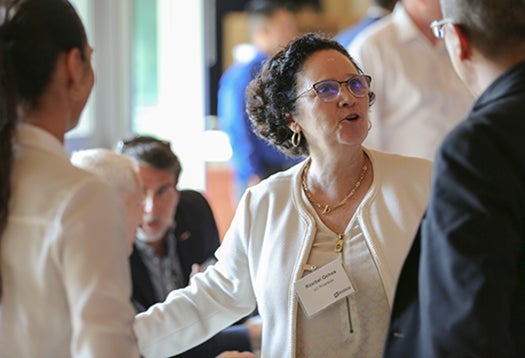
UC Riverside is helping the Inland Empire economy grow by providing essential support to startup companies that are capitalizing on sustainability innovations.
By leading what’s called the Inland SoCal Accelerate Hub, the university’s Office of Technology Partnerships is working to connect startups with the resources they need to be successful.
With just an idea and ambition, entrepreneurs can receive instructions, tips, and the necessary documents to start a company. Fledgling companies that are beginning to gain traction can qualify for UCR’s Opportunity Gateway program to help them secure the investments they need to expand and penetrate larger markets.
“Opportunity Gateway will connect promising companies with corporate partners and investors that will accelerate their growth” explained Rosibel Ochoa, UCR’s associate vice chancellor of technology partnerships.
Startups can receive training and coaching to apply for federal Small Business Innovation Research (SBIR) and Small Business Technology Transfer (STTR) grants through UCR’s SBIR/STTR Resource Center.
These grants range from $50,000 to $250,000 for product concept development, and once a company completes its first grant project, it may seek a much larger second-phase grant, ranging from $500,000 to $1.5 million, to create prototypes of their product.
Companies selected for the Opportunity Gateway also may be connected to venture capitalists, financial institutions, or corporate partnerships to secure investment capital, Ochoa said.
To solidify regional economic goals, improve the climate for local entrepreneurs, and coordinate available resources for startups, UCR hosted two days of meetings during the summer that brought together more than 80 officials from business, government, business support groups, and academic institutions in Riverside, San Bernardino, and Imperial Valley counties. Their brainstorming sessions aimed to bolster economic growth by encouraging innovation, supporting local startups, and creating job opportunities.
Participants identified four focus areas to improve the region’s entrepreneurial climate: capital access, communications, coordination between groups and entities, and the physical and program infrastructure needed for entrepreneurs to gain market share more quickly. They then formed four committees, one for each area of focus.
“Now, the committees in those four areas are deciding their charge, objectives, and plans,” Ochoa said.
“With this kickoff, we wanted to bring everybody together and reach an agreement on the region’s priorities and the actions we’ll take moving forward,” Ochoa added. “The focus is on the four priority areas, and we are already starting to work with companies in the Opportunity Gateway.”
The Inland SoCal Accelerate Hub was initiated with a $250,000 grant from the California Office of the Small Business Advocate, awarded earlier this year. Governor Newsom’s administration is supporting several Accelerate Hubs throughout the state.
For more information or to get involved, visit ihub.ucr.edu or contact Aileen Luib at aileen.luib@ucr.edu.





